Everything about Rabbits/Todo sobre los conejos (eng/esp)
ENGLISH
If you know a lot about rabbits, you can avoid mistakes when keeping them. Rabbits are incredibly complex. Knowing the most important characteristics of the animals helps to save you and the animals a lot of trouble and to give the rabbits a nice life, but also to recognize when situations are serious and which needs you absolutely have to consider when keeping them.
The most important things you need to know about rabbits
Rabbits are very fond of movement and love to discover new things. Keeping them in a cage is unthinkable for this reason. It is best to keep an indoor rabbit like an indoor cat. But:
Never keep an animal alone. Rabbits are absolutely social animals. Keeping them alone is tantamount to cruelty to animals. Rabbits kept in a group develop a group hierarchy in which each animal has a different role.
Rabbits have a very sensitive gastrointestinal tract. If a baby rabbit has diarrhea, then you should see the veterinarian as soon as possible. A baby rabbit that has diarrhea can die in a very short time.
Instinctively, animals tend to hide symptoms of illness. This serves their survival in the group, where they must present themselves as a strong, survivable member. The consequence for keeping rabbits: go immediately to the veterinary practitioner or to the veterinarian even for minor abnormalities.
Each rabbit has its own individual, distinctive character. If you keep several rabbits, you will notice that each animal has its very own habits and behaviors.
Forget the stereotype of the cute rabbit. Dwarf rabbits and rabbits are animals with distinct instincts. They defend their territory and destroy many things. They can be aggressive, can growl and bite. If you do not accept this, you should choose another pet.
Rabbits will nibble at anything. While they are not rodents, their digestive system relies on a steady supply of food. There must always be food available - at all times of the day and night - primarily hay. Always make sure that your rabbits do not eat anything unsuitable. The animals have a very sensitive gastrointestinal tract and at the same time tend to eat all objects.
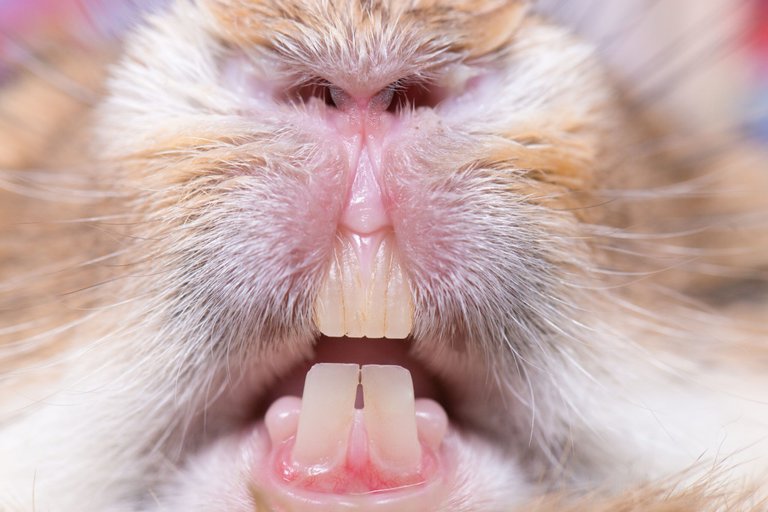
Both the teeth and claws of rabbits are constantly growing back. For this reason, you should provide regular teeth and claws abrasion. For teeth abrasion serve hay and tree trunks or small pieces of wood with bark. Claw wear is promoted by giving your rabbits plenty of exercise. However, even with a lot of exercise, you will still have to trim your animals' claws regularly. If you can't or don't want to do this yourself, you should contact a veterinary practitioner or a veterinarian.
In the wild, rabbits are burrowing animals. The consequences for keeping rabbits in a species-appropriate manner: a sunny, warm place is unsuitable for rabbits. Make sure the animals have a place to hole up. This can be a large rabbit house or a simple paper box. Provide a place for your animals to dig.
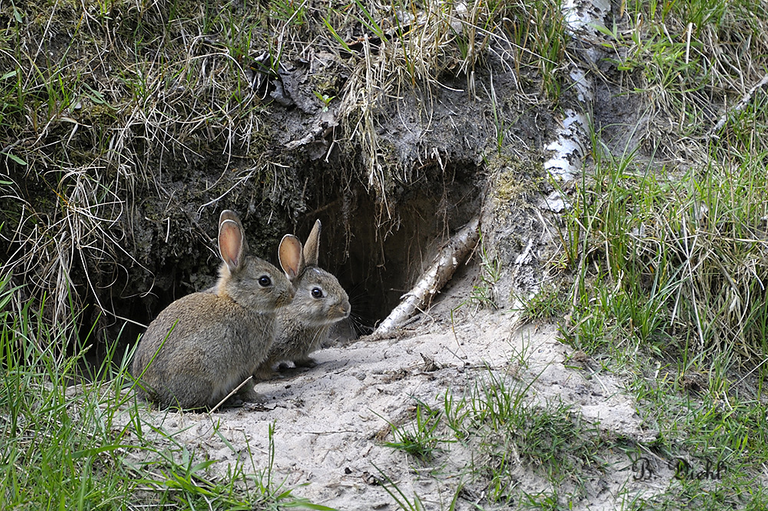
Rabbits have a scent gland under their chin. For this reason, they rub their chins on all new objects or on objects they have not seen in a long time. This behavior is used to mark their territory.
Rabbits ram - but why? This is not exclusively for satisfying the sex drive, because animals of the same sex also ram each other. The latter serves to clarify the hierarchy.
They usually make very few sounds. When they are satisfied or enjoying something, they murmur with their teeth. When they are aggressive, they may growl (some animals growl very softly or not at all). If a rabbit is screaming really loudly, it means it is scared to death or suffering a lot. A baby rabbit calling for its mother emits short squeaks. If a rabbit makes sounds that are prolonged or sound suffering, be sure to see the veterinarian immediately. For more information about the behavioral repertoire, read this article.
Rabbits are flight animals. This has the following consequences for the attitude: Never hold the animal by its hind legs. If a rabbit gets its hind legs tangled in something and cannot escape, the animal may panic and become deathly afraid, causing it to emit loud, human-like cries.
Rabbits are capable of learning. In my opinion, the stereotype of dumb rabbits is based on the fact that many rabbits are kept in cages and become dull accordingly. However, one can train the animals only very badly. Rabbits can, for example, memorize that a certain sound means that food is now available or that a certain word refers to them. However, they cannot be trained like a dog.
Rabbits are not perfect pets for children. Because of their tendency to be anxious, their sensitivity to noise, and their need for quiet, they do not make perfect pets for children.
Rabbits are not perfect pets for small apartments. Contrary to the claim of some that rabbits are optimal pets for small apartments, the fact is that the animals have a great urge to move and are quite demanding.
Pet stores sell many unsuitable rabbit products. Dry food with added sugar is not suitable for the animals, even though many pet stores sell it. You will notice with time that many things that pet stores sell for rabbits are not good for the health of the animals - be it the small cage, the rabbit house made of unnatural materials, the drinking vessel or some other products that contradict the nature of rabbits or pose a danger to the animals. Therefore, put a basic critical attitude towards rabbit products. Be creative, use natural materials whenever possible, and even create an interesting environment for the rabbits once in a while by repurposing items.
Due to the training content of veterinarians, it is often not easy to find a veterinarian who is well versed in rabbits (see also "Further Information" for nationwide lists of rabbit experts). Regardless, the following applies to every rabbit owner: Become an expert yourself so that you can better understand your animals and better assess individual situations. However, as soon as the animal shows symptoms of illness, you should consult a veterinarian or a veterinary practitioner as soon as possible.
Now here are a few more photos of my rabbits:
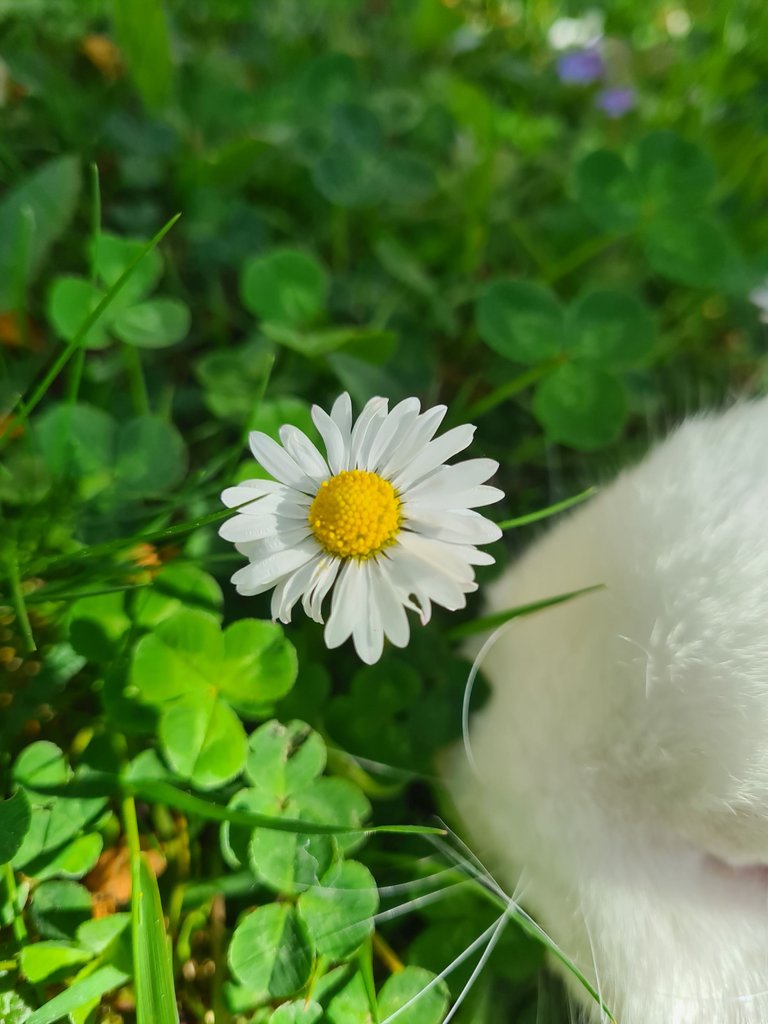
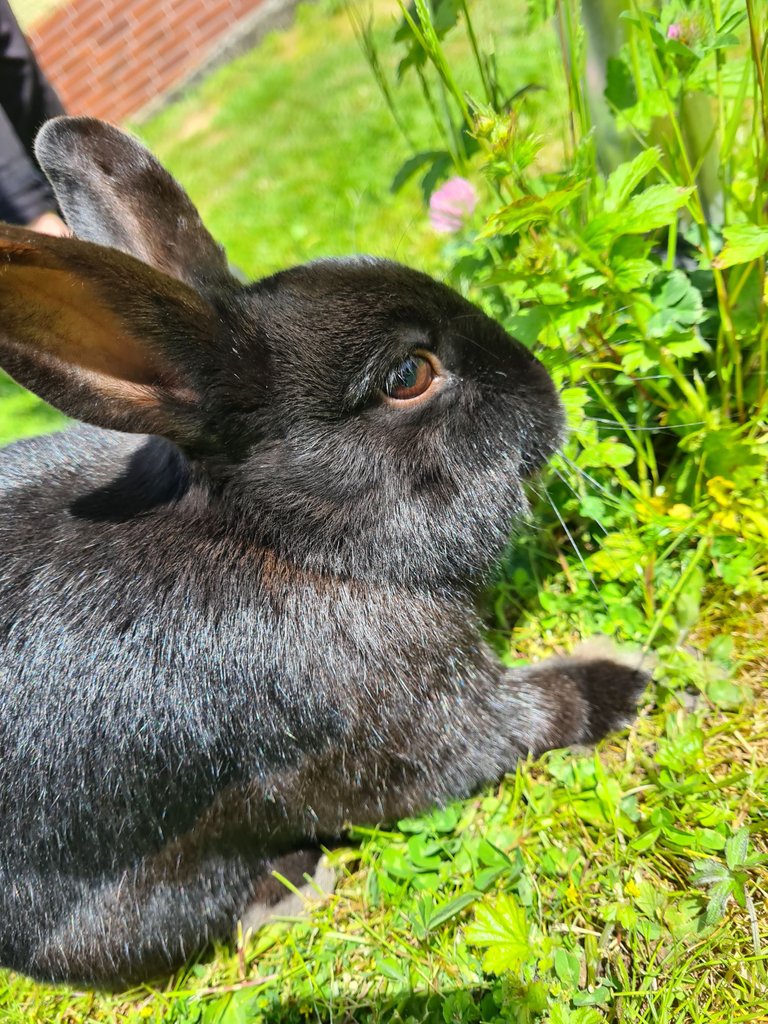

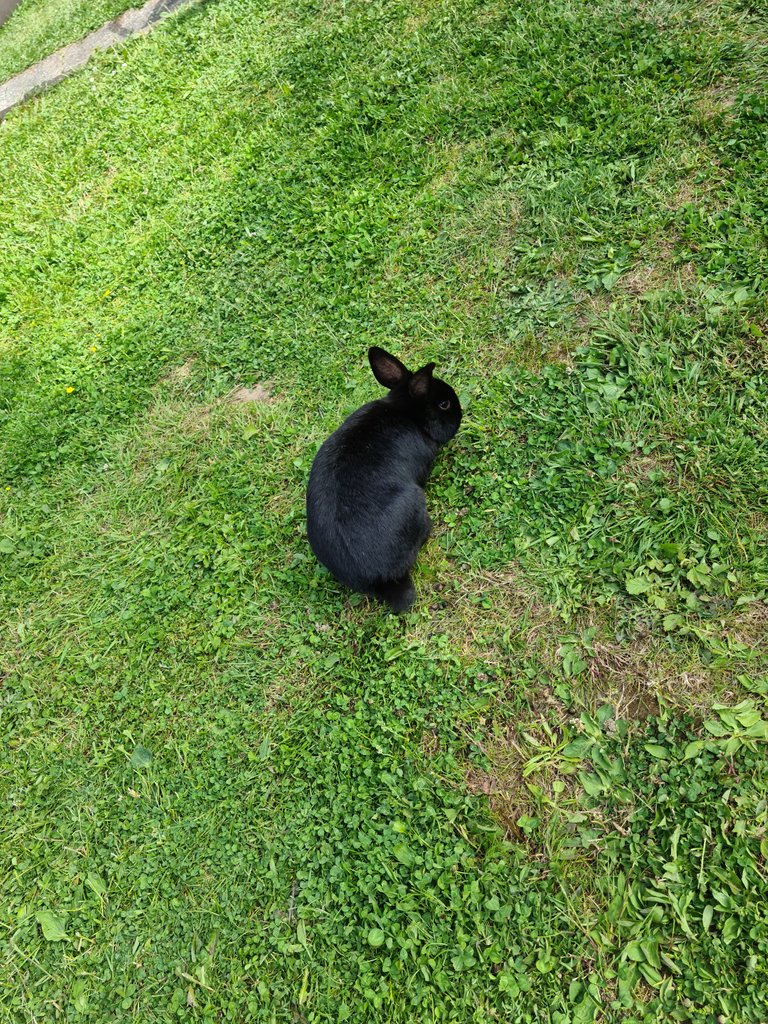
I hope you got to know more about rabbits in this post, and hopefully see you soon, have a nice day!
ESPANOL
Si sabes mucho sobre los conejos, puedes evitar errores al mantenerlos. Los conejos son increíblemente complejos. Conocer las características más importantes de los animales ayuda a ahorrarle a usted y a los animales muchos problemas y a dar a los conejos una vida agradable, pero también a reconocer cuándo las situaciones son graves y qué necesidades hay que tener en cuenta a la hora de mantenerlos.
Lo más importante que debe saber sobre los conejos
Los conejos son muy aficionados al movimiento y les encanta descubrir cosas nuevas. Mantenerlos en una jaula es impensable por esta razón. Lo mejor es tener un conejo de interior como un gato de interior. Pero:
Nunca tengas un animal solo. Los conejos son animales absolutamente sociales. Mantenerlos solos equivale a la crueldad con los animales. Los conejos mantenidos en grupo desarrollan una jerarquía de grupo en la que cada animal tiene un papel diferente.
Los conejos tienen un tracto gastrointestinal muy sensible. Si un conejo bebé tiene diarrea, hay que acudir al veterinario lo antes posible. Un conejo bebé que tiene diarrea puede morir en muy poco tiempo.
Instintivamente, los animales tienden a ocultar los síntomas de la enfermedad. Esto sirve para su supervivencia en el grupo, donde debe presentarse como un miembro fuerte y superviviente. Consecuencia de la tenencia de conejos: Acudir inmediatamente al veterinario o a la veterinaria incluso en caso de anomalías menores.
Cada conejo tiene su propio carácter individual y distintivo. Si tienes varios conejos, te darás cuenta de que cada animal tiene sus propios hábitos y comportamientos.
Olvídate del estereotipo del conejo bonito. Los conejos enanos y los conejos son animales con instintos distintos. Defienden su territorio y destruyen muchas cosas. Pueden ser agresivos, pueden gruñir y morder. Si no lo acepta, debe elegir otra mascota.
Los conejos mordisquean cualquier cosa. Aunque no son roedores, su sistema digestivo depende de un suministro constante de alimentos. Siempre debe haber comida disponible, a cualquier hora del día y de la noche, y eso es principalmente heno. Asegúrese siempre de que sus conejos no comen nada inadecuado. Tienen un tracto gastrointestinal muy sensible y al mismo tiempo tienden a comer todos los objetos.
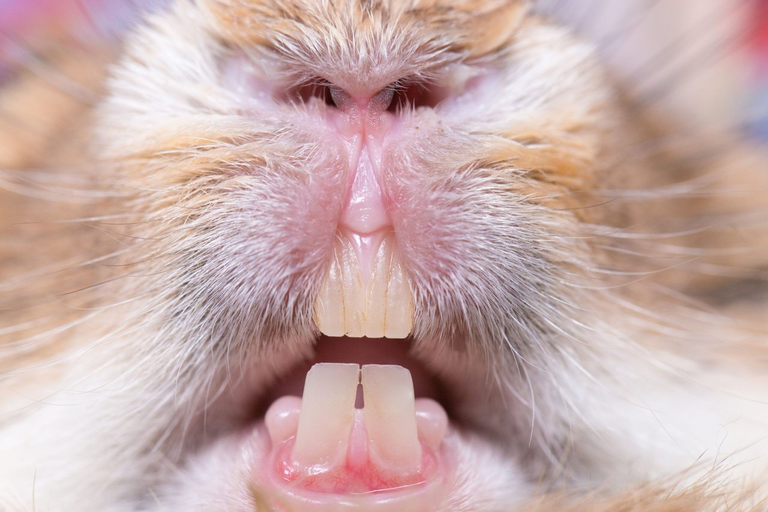
Tanto los dientes como las garras de los conejos vuelven a crecer constantemente. Por esta razón, debe proporcionar una abrasión regular de los dientes y las garras. El heno y los troncos de árboles o pequeños trozos de madera con corteza sirven para la abrasión de los dientes. El desgaste de las garras se fomenta dando a sus conejos mucho ejercicio. Pero incluso con mucho ejercicio, tendrás que recortarles las garras regularmente. Si no puedes o no quieres hacerlo tú mismo, debes consultar a un veterinario o a un profesional de la salud.
En la naturaleza, los conejos son animales de madriguera. Las consecuencias para la tenencia de conejos adecuada a la especie: un lugar soleado y cálido es inadecuado para los conejos. Asegúrate de que los animales tienen un lugar donde esconderse. Puede ser una conejera grande o una simple caja de papel (ver opciones de refugio). Proporcione un lugar para que sus animales puedan excavar.

Los conejos tienen una glándula aromática bajo la barbilla. Por ello, se frotan la barbilla con cualquier objeto nuevo o que no hayan visto en mucho tiempo. Este comportamiento se utiliza para marcar su territorio.
Los conejos embisten, pero ¿por qué? Esto no es exclusivamente para satisfacer el impulso sexual, porque los animales del mismo sexo también se embisten entre sí. Esto último sirve para aclarar la jerarquía.
Suelen emitir muy pocos sonidos. Cuando están satisfechos o disfrutan de algo, maúllan con los dientes. Cuando son agresivos, pueden gruñir (algunos animales gruñen muy suavemente o no lo hacen). Si un conejo grita muy fuerte, significa que está muerto de miedo o que está sufriendo mucho. Una cría de conejo que llama a su madre emite pequeños chillidos. Si un conejo emite sonidos prolongados o parece estar sufriendo, asegúrese de acudir al veterinario inmediatamente.
Los conejos son animales voladores. Esto tiene las siguientes consecuencias para la actitud: Nunca sujete al animal por las patas traseras. Si un conejo se enreda con sus patas traseras en algo y no puede escapar, el animal puede entrar en pánico y sentir un miedo atroz, lo que le hace emitir fuertes gritos de tipo humano.
Los conejos son capaces de aprender. Creo que el estereotipo de los conejos tontos se basa en el hecho de que muchos conejos son mantenidos en jaulas y se vuelven muertos en consecuencia. Sin embargo, sólo se puede entrenar a los animales muy mal. Los conejos pueden, por ejemplo, memorizar que un determinado sonido significa que hay comida disponible o que una determinada palabra se refiere a ellos. Sin embargo, no se les puede entrenar como a un perro.
Los conejos no son mascotas perfectas para los niños. Debido a su tendencia a la ansiedad, su sensibilidad al ruido y su necesidad de tranquilidad, no son las mascotas perfectas para los niños.
Los conejos no son las mascotas perfectas para los apartamentos pequeños. En contra de lo que afirman algunos de que los conejos son mascotas ideales para apartamentos pequeños, lo cierto es que estos animales tienen muchas ganas de moverse y son bastante exigentes.
Las tiendas de animales venden muchos productos para conejos inadecuados. El alimento seco con azúcar añadido no es adecuado para los animales, aunque muchas tiendas de animales lo vendan. Con el tiempo te darás cuenta de que muchas de las cosas que venden las tiendas de mascotas para los conejos no son buenas para la salud de los animales, ya sea la jaula pequeña, la casa para conejos hecha de materiales no naturales, el bebedero o algunos otros productos que contradicen la naturaleza de los conejos o suponen un peligro para los animales. Por lo tanto, adopte una actitud crítica básica hacia los productos de conejo. Sé creativo, utiliza materiales naturales siempre que sea posible, e incluso crea un entorno interesante para los conejos de vez en cuando reutilizando objetos.
Debido a la formación de los veterinarios, a menudo no es fácil encontrar un veterinario que esté bien versado en conejos (ver también "Información adicional" para las listas nacionales de expertos en conejos). En cualquier caso, lo siguiente se aplica a todos los propietarios de conejos: conviértase usted mismo en un experto para poder entender mejor a sus animales y evaluar mejor las situaciones individuales. Sin embargo, en cuanto el animal muestre síntomas de enfermedad, hay que consultar a un veterinario o a un facultativo lo antes posible.
Aquí hay algunas fotos más de mis conejos:




Espero que hayas conocido más sobre los conejos en este post, y espero que nos veamos pronto, ¡que tengas un buen día!
(lo siento si mi español no es el mejor, todavía estoy aprendiendo)
good to know...and some really nice pics
Thanks a lot!